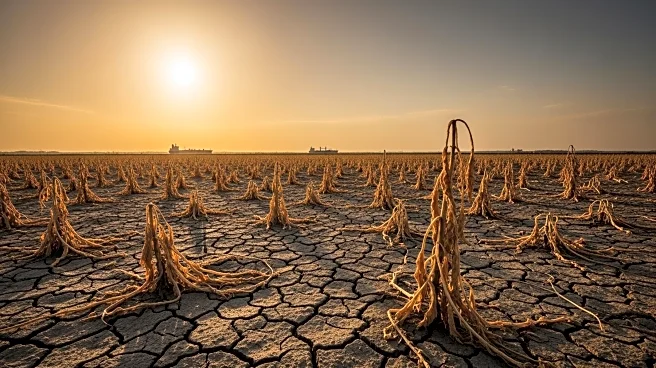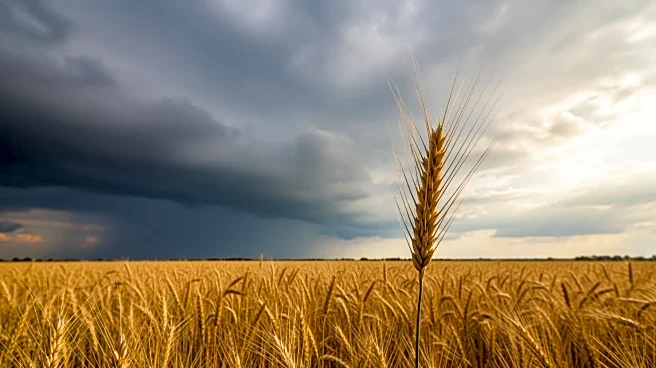What is the story about?
What's Happening?
The agricultural community in Lapeer County, Michigan, is experiencing significant economic challenges due to a combination of tariffs and drought conditions. The U.S. Drought Monitor has classified the area as being in a moderate drought, exacerbating the difficulties faced by local farmers. A recent survey by the National Corn Growers Association (NCGA) revealed that nearly half of the 1,034 farmers surveyed believe the U.S. is on the brink of a farm crisis. The survey also indicated that 80% of respondents feel the farm economy is nearing a crisis, with 65% expressing increased concern about their financial situation compared to the previous year. Farmers are considering delaying equipment purchases, reducing fertilizer use, and seeking additional income sources off the farm. The U.S. Department of Agriculture (USDA) projects record corn crops this year, but demand is not keeping pace with production, potentially driving prices down further.
Why It's Important?
The challenges faced by farmers in Lapeer County reflect broader issues in the U.S. agricultural sector, which is a critical component of the national economy. The potential farm crisis could have widespread implications, affecting not only farmers but also related industries such as food processing, storage, and transportation. In Michigan alone, agriculture contributes $104.7 billion annually to the economy and supports over 17,000 jobs. The financial strain on farmers could lead to reduced agricultural output, impacting food supply and prices. Additionally, the American Farm Bureau Federation has warned that government intervention may be necessary to support farmers through grants or loans, highlighting the severity of the situation.
What's Next?
Farmers and agricultural producers in Lapeer County and beyond may need to adapt to the ongoing economic pressures by implementing cost-saving measures and exploring alternative income sources. The USDA and Congress might consider providing financial assistance to help stabilize the agricultural sector. As the situation develops, stakeholders will be closely monitoring crop yields, market prices, and potential policy responses to mitigate the impact on the farming community.
Beyond the Headlines
The current challenges in agriculture could lead to long-term shifts in farming practices and economic strategies. Farmers may increasingly adopt sustainable practices to reduce dependency on costly inputs like fertilizers. Additionally, the geopolitical factors affecting trade could prompt a reevaluation of international agricultural trade policies. The situation underscores the interconnectedness of global markets and the vulnerability of local economies to international events.














